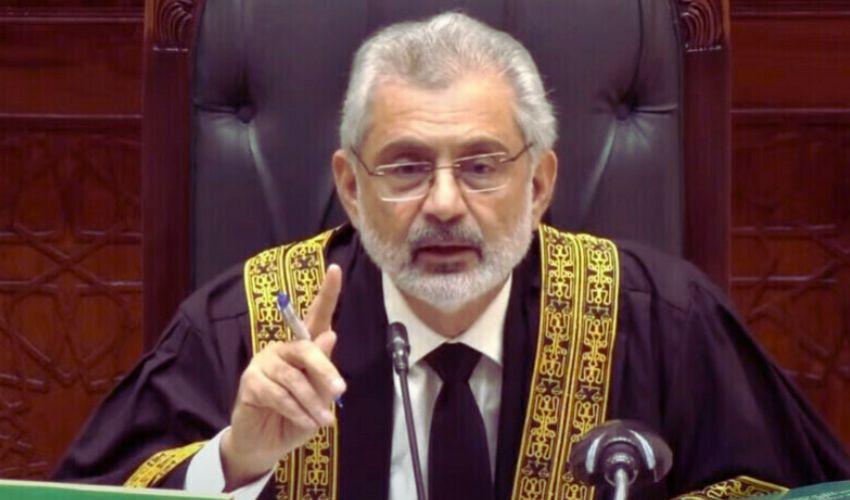The Supreme Court of Pakistan has addressed a letter to British High Commissioner Jane Marriott in Islamabad, emphasising that the court has rectified its past mistakes and urging the United Kingdom to do the same.
The Supreme Court of Pakistan in its letter to British High Commissioner Jane Marriot explained its January 13 verdict, setting aside the Peshawar High Court order that reinstated “bat” as the PTI’s electoral symbol for the general elections 2024.
On the directive of Chief Justice Qazi Faez Isa, the Registrar of the Supreme Court wrote to the British High Commission, noting that High Commissioner Marriott emphasised the importance of democracy, elections, and open societies at recently held Asma Jahangir Conference.
“Not all parties were formally permitted to contest the elections and that legal processes were used to prevent some political leaders from participation, and to prevent the use of recognisable party symbols,” British Envoy had said.
The apex court, in its letter, noted that the British High Commissioner’s criticism of stripping a certain political party of its electoral symbol “was unjustified” as the latter did not follow the law, abiding political parties to hold intra-party elections.
The court noted that elections were required to be held within 90 days of the completion of the tenure of the National and provincial assemblies but “had not taken place because the President and the Election Commission of Pakistan were at odds regarding who is empowered to announce the election date”.
“The matter was resolved in just 12 days by the Supreme Court, and general elections were held throughout Pakistan on 8 February 2024”, it noted.
Previously, the letter mentioned, many wanting to contest elections in Pakistan faced a lifetime ban because they were not considered honest and trustworthy (‘sadiq’ and ‘ameen’) by the Supreme Court.
“However, a larger 7-Member Bench overruled the earlier decision, holding that it did not conform to the Constitution and the law”, it added. The Supreme Court said that the law enacted by Parliament (Elections Act, 2017) requires democracy within political parties via the holding of periodical intra-party elections; to forestall autocracy or even dictatorship within them. To ensure compliance with this democratic principle the law stipulates, it said, that if a political party does not hold intra-party elections, then it would not be eligible for an election symbol.










